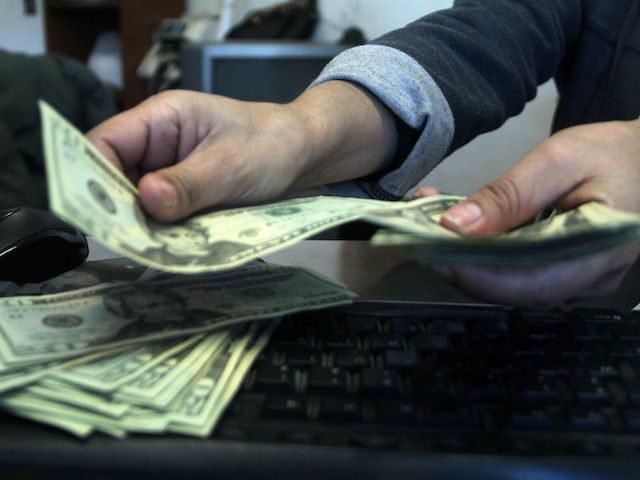Street gangs in the U.S. and foreign criminal syndicates may have stolen up to half of the unemployment benefits paid out during the pandemic, according to a report cited by Axios.
As the United States has been pumping out unemployment benefits over the past year, an Axios report reveals some estimates show “unemployment fraud during the pandemic could easily reach $400 billion.”
The report shows the majority of the money could likely be the result of foreign crime syndicates, which ultimately means this is not just theft but could be a matter of national security.
A major part of the problem arose because the money was sent to recipients through the often antiquated unemployment system of the states.
These were easier to defraud rather than the IRS tax systems the federal government used to distribute the direct stimulus payments. At the time, states’ systems were not fully prepared to handle the unprecedented wave of unemployment claims they faced due to the cities being locked down to putting Americans out of work.
The federal enhancements to unemployment—which originally kicked in an additional $600 per week—made fraudulently collecting payments much more lucrative than it had been in ordinary times.
The report noted, “They all knew fraud was inevitable, but decided getting the money out to people who desperately needed it was more important than laboriously making sure all of them were genuine.”
The CEO of ID.me, Blake Hall, which is a service designed to try and prevent this type of fraud, said, “America has lost more than $400 billion to fraudulent claims,” which could ultimately add up to roughly 50 percent of the money sent to Americans possibly being stolen.
Haywood Talcoive, the CEO of LexisNexis Risk Solutions, told Axios that he’s estimated more than “70% of the money stolen by impostors ultimately left the country, much of it ending up in the hands of criminal syndicates in China, Nigeria, Russia, and elsewhere.” He added, “These groups are definitely backed by the state.”
The report also indicated that most of the rest was stolen by domestic gangs of criminals, “who have made up a greater share of the fraudsters in recent months.”
Before the pandemic, when cities across the nation were open, there were much fewer unemployment claims, which also did not last as long. The report claims that unemployment claims were not as lucrative a target for international criminal syndicates because of this.
The extended benefits were looked at as the key to keeping the economy above water while unemployment numbers soared. However, after pandemic restrictions started to be phased out, letting Americans go back to work, Democrats fought to keep the extended benefits, making the possibility of fraud continue.
The report showed various ways of how the claims were able to be stolen:
- “Mules” — low-level criminals — are given debit cards and asked to withdraw money from ATMs. That money then gets transferred abroad, often via bitcoin.
…
- Unemployment became where the big money was — and was also being run by bureaucrats who weren’t as quick to crack down on criminals as private companies normally are.
- Unemployment fraud is now offered on the dark web on a software-as-a-service basis, much like ransomware. States without fraud-detection services are naturally targeted the most.
The report added that even though states are now “getting more sophisticated” to prevent fraud, “it’s far too late.”
According to the report, Treasury Department declined to comment on these estimates.

COMMENTS
Please let us know if you're having issues with commenting.